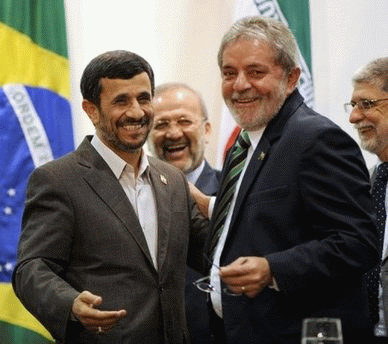NATO can continue to serve as a stopgap, but it is unlikely that the alliance as a whole will ever embrace the new role that Washington would like to see it adopt. Yet, as long as NATO continues to be viewed as the preferred "alliance of choice" for the United States, it makes it difficult to begin taking the long, hard, difficult steps toward building a new global security organization.
Stealing a term -- and modifying it to some extent -- from a proposal advanced by Amitai Etzioni in 2003, what might be some of the parameters of such a new "Global Security Authority"? They would include:
- States committed to a global, rather than regional, definition of security.
- A willingness to contribute proportionally based on a country's size and economic potential.
- A belief that the current configuration of global institutions and the world order that the United States was prepared to support and defend in the 20th century -- i.e., open societies lightly defended, open lines of communication, free trade -- is beneficial.
- A streamlined decision-making system for rapid deployment and use of power.
Unfortunately, any effort to "bell this cat" faces numerous obstacles. To begin with, we currently don't have an alignment of the factors capable of generating such a new security treaty. The further afield the threat or crisis from Europe, the less likely European states would want to be involved. Rising powers like India and Brazil might be interested in playing a more global role, and they might even be prepared to contribute, but not as long as the current international order is not seen as favorable to their interests. The United States itself is reluctant to share substantive decision-making authority with other states, particularly after the U.S. military's experience during the Kosovo war as well as continuing friction over rules of engagement between different allied forces in Afghanistan.
Ironically, given the opprobrium Democrats laid on the concept during the years of the Bush administration, the way forward may be to embrace and develop the concept of "coalitions of the willing." Not as a way to pass off an essentially U.S.-led operation as representing the will of the international community, as the idea was used in the run-up to the Iraq war, but rather as a way to forge discrete partnerships with specific countries bounded by clear geographic criteria for the purposes of specific missions.
The likelihood that Brazil, France, India and Nigeria would somehow all come together under the aegis of a "Global NATO" is nil. But what about a formal organization to combat piracy in the western Indian ocean, in place of the ad hoc coalition we currently have, for instance? It could lead to some of the benefits that traditional alliances such as NATO bestowed -- i.e., close working relations and moves towards greater interoperability -- but would not involve countries making open-ended security guarantees to each other, on the model of NATO's famous Article 5.
However, this doesn't seem to be the trend the administration is pursuing. Washington still seems committed to finding a single organization willing and able to take responsibility for the entire myriad of security challenges. So the president may call for "other shoulders" to help bear the burden of global security. But for the time being, he shouldn't expect many to be on offer.

No comments:
Post a Comment